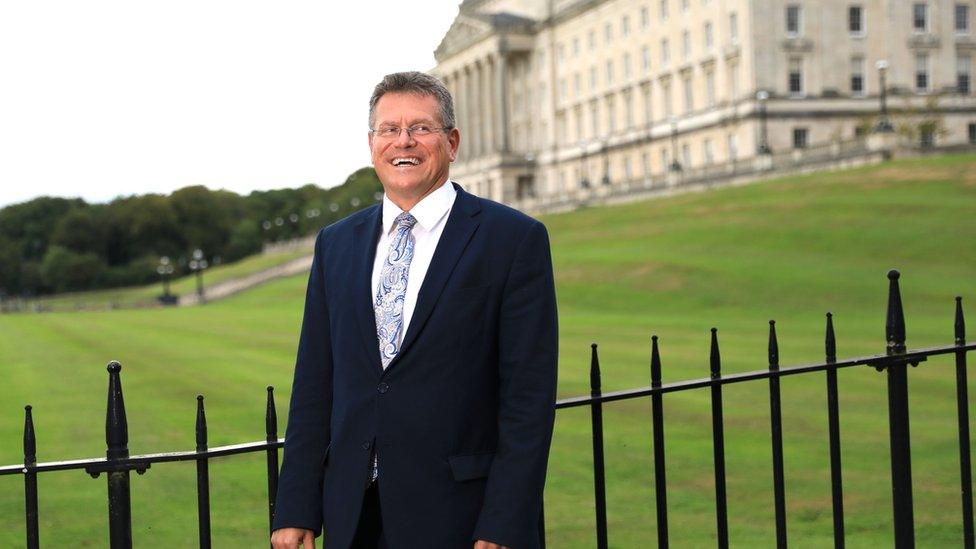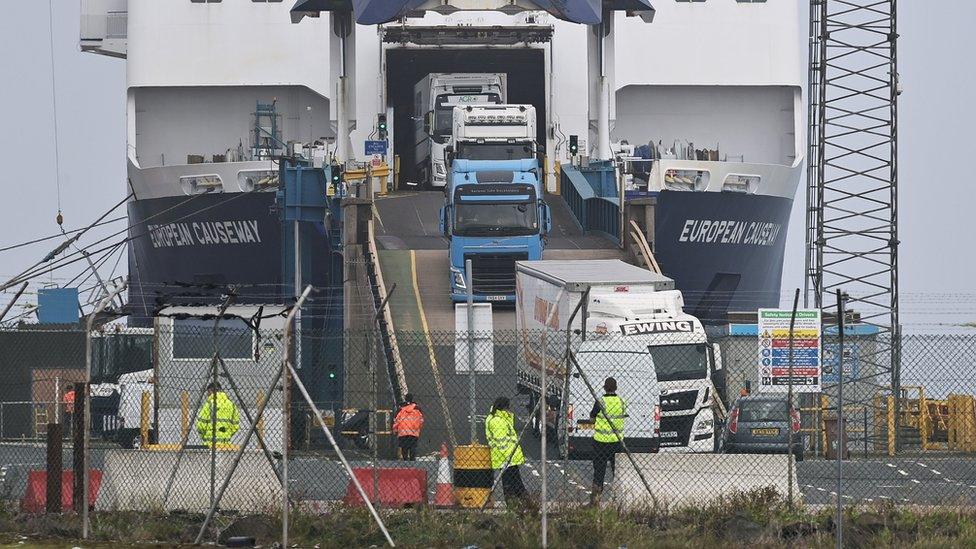Northern Ireland Protocol: MEPs criticise UK government
- Published

The protocol has been a source of tension since it came into force at the start of 2021
The UK government has faced strong criticism from MEPs over its move to unilaterally override the Northern Ireland Protocol.
The protocol is part of the Brexit deal which was agreed by the prime minister in 2019 and subsequently ratified by parliament.
However the government says it is now causing too many practical and political difficulties.
The EU says the UK's move to change the deal is a breach of international law.
Barry Andrews, MEP for the Republic of Ireland's Fianna Fáil party, said: "In the UK, the stigma against breaking international law, domestic law and constitutional norms has been significantly eroded since Boris Johnson became prime minister.
"The events of the last 24 hours demonstrate that for many enough is enough."
'Reckless'
Other MEPs also made reference to the prime minister's difficulties during the debate in Strasbourg.
The German Green Terry Reintke said the UK's actions look like "a group of reckless, privileged people trying to distract from their own mistakes by breaking international law rather than serious governing".
The protocol keeps Northern Ireland in the EU's single market for goods, preventing a hard border with the Republic of Ireland.
But it means new checks and controls on commercial goods which come into Northern Ireland from other parts of the UK, creating a trade border in the Irish Sea.

It is opposed by Northern Ireland's unionist parties who say it undermines their place in the UK.
The largest unionist party, the Democratic Unionist Party (DUP), says it will not fully re-enter Northern Ireland's power-sharing government until the protocol is tackled to their satisfaction.
Three parties in Northern Ireland - Sinn Féin, Alliance and the Social Democratic and Labour Party (SDLP) - say the protocol is a necessary compromise to mitigate the effects of Brexit in Northern Ireland.
The government plans to radically change the protocol in UK domestic law to minimise controls on GB goods entering NI.
It is also planning a system of "dual regulation" which would allow goods produced to GB standards to be manufactured in or imported to NI.
The legislation passed its first parliamentary stage last week.
The government says the move will not breach international law, citing the defence of "necessity" but legal experts are sceptical.

Maros Sefcovic says the EU had shown "creativity" in proposals
Some of the MEPs emphasised that a negotiated compromise is still possible.
David McAllister, a German MEP who chairs the parliament's foreign affairs committee, said: "We remain partners with shared values therefore I call on the UK government to re-enter talks to facilitate the practical implementation of the protocol."
That was echoed by the EU's chief negotiator Maroš Šefčovič who addressed the MEPs.
He said the EU had shown "creativity" in its proposals to ease the impact of the protocol but it needs "political will in London to actually have genuine talks".
Related topics
- Published2 February 2024

- Published27 June 2022

- Published28 June 2022